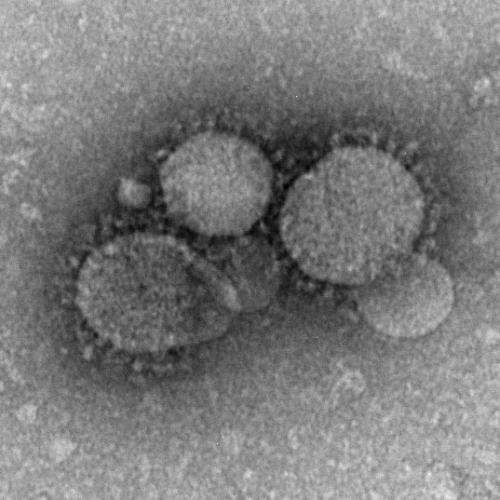Lab-dish advance against MERS virus

Chinese scientists said Tuesday they had identified a compound that, in lab dish experiments, blocks infection by the deadly Middle East Respiratory Syndrome (MERS) virus.
A type of small protein, also known as a peptide, prevents the spikey virus from fusing with human respiratory cells, they said.
Fusion is a key step in replication of the virus. It enables the virus to infiltrate a cell and hijack its cellular machinery in order to reproduce.
The study, published in the journal Nature Communications, was led by Shibo Jiang at Fudan University in Shanghai.
The peptide, called heptad repeat 2 (HR2P), has "good potential" for development into a future drug against MERS, it says.
So far, HR2P's effects have only been studied on cells in a lab dish and not yet on animals—the next step in a long process to validate any new drug for safety and effectiveness.
The first case of MERS surfaced in Saudi Arabia April 2012.
It is considered a more virulent but less transmissible cousin of SARS, a so-called coronavirus that erupted in Asia in 2003 and infected 8,273 people, nine percent of whom died.
There have been 180 laboratory-confirmed cases of MERS, including 77 deaths, according to a World Health Organisation (WHO) toll issued on Tuesday.
More information: Paper: press.nature.com/templates/press/images/spacer.gif
© 2014 AFP













